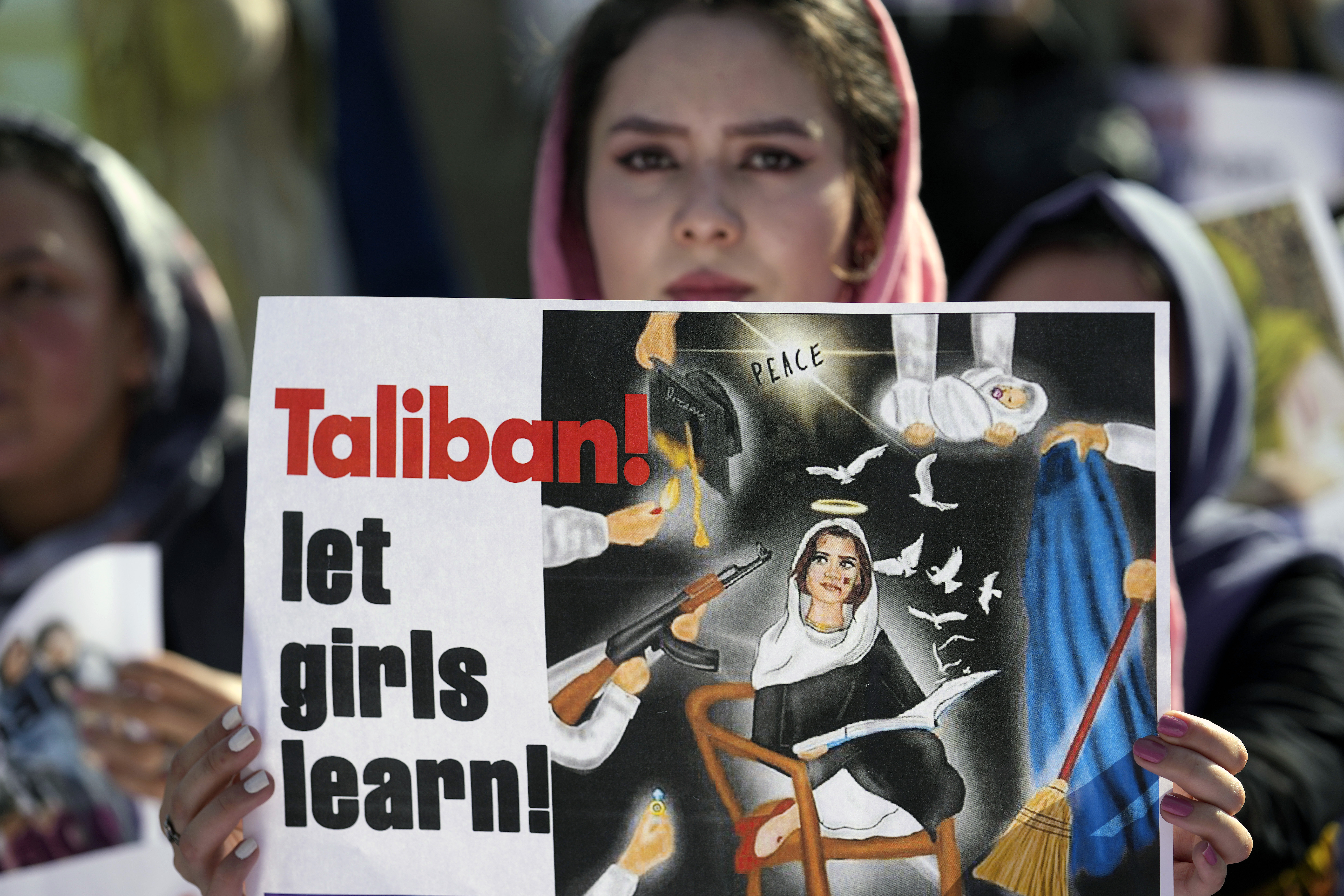
Islamabad, Pakistan – Tens of thousands of Pakistani women have rallied in major cities across the country as part of the sixth Aurat March (Women’s March) to mark International Women’s Day.
This year’s march was held simultaneously in the capital Islamabad, Lahore and Multan in the northern Punjab province, and Hyderabad in the southern Sindh province.
The Aurat March, held since 2018, has attracted backlash from a section of the population due to its provocative slogans, banners and placards challenging patriarchy and highlighting issues facing women, such as divorces and sexual harassment.
Karachi, the country’s biggest city, will hold the march on March 12.
Organisers had to approach the Lahore High Court after the city authorities refused permission for the march over security issues. The court gave the green light for the march to proceed in the eastern city.

As women and members of the transgender community marched in Islamabad, trying to cross a police blockade, they were baton charged by the police. Several members of the transgender community were injured.
Imaan Zainab Mazari-Hazir, one of the organisers in Islamabad, called the state “anti-women”, adding that what the participants faced today was nothing new.
“We have been saying this for decades now. Be it the time of previous dictators or today. Nothing has changed,” she told Al Jazeera.
“We speak of socialist feminism. We speak of democracy. We speak of anti-enforced disappearances. We speak of equality and access to public spaces for women. These are the reasons why the state will always have a problem with us.”
‘Insecure and unsafe’
Although it was a weekday, many people turned up at the ground outside Islamabad’s National Press Club to participate in the march, carrying placards and banners.
Maryam Fatima, a lawyer based in Islamabad was carrying one such banner with a caption in Urdu that read, “My shirt is colourful, but don’t think of it as my consent.”
Speaking to Al Jazeera, Fatima, who is originally from Karachi, said she has attended all previous marches and, for her, the event is a place where she can express her opinion about her personal experiences.
“For me, the Aurat March is one day of the year where I can talk what about what I feel,” she said.
However, Fatima said that she felt that things were not necessarily improving or getting better for women.

“I moved to Islamabad two years ago and despite it being the capital, I feel more insecure and unsafe here. We cannot just go to a public park due to fears of harassment and assault,” she said, adding that even at court, where she practises law, men treated women in condescending manner.
Another participant, Khushbakht Sohail, said in her experience, while the Aurat Marches have given people a platform to come out and raise their voice, the state’s response has only become harsher.
“There is a constant backlash every year you see before the march,” she told Al Jazeera, referring to photoshopped banners and slogans used to harass Aurat March organisers and participants on social media in a coordinated manner.
“We saw, even today, how the police inflicted violence upon us, yet we are going to stand our ground.”
The participants were scheduled to make a short journey of roughly three kilometres (1.9 miles), from National Press Club to D-Chowk, a town square in front of Presidency after the speeches ended, but the police initially refused to remove the containers and barriers that blocked the participants from beginning their march.
However, after more than an hour of sloganeering, the authorities eventually removed the barricades.
With popular songs such as singer Hasan Raheem’s, Peechay Hatt, (Move Back) blaring from the speakers, and powerful chants from the crowd, saying “Let us go to D-Chowk, or else leave your seat of power,” and “We are out against oppression, come walk with us,” a huge roar went out when the police removed the barricades.

Sohail, who worked in the development sector, said that from the perseverance shown by the crowd and sticking to their demand to march, it was evident that people’s anger is increasing, and it would not stop.
“This country belongs to us, as well. We will take it back if we are not given our rights,” she said.
The Aurat March organisers in various cities presented their charter of demands, including an end to patriarchal violence, increased representation of women while making decisions on climate-related matters, providing safe access to women for economic opportunities, and others.
Gender-based violence has remained a considerable problem in Pakistan. Global rights organisation Human Rights Watch, in its 2022 report, said that violence against women and girls, including rape, murder, acid attacks, domestic violence, and forced marriage, is “endemic” throughout the country.
“Human rights defenders estimate that roughly 1,000 women are killed every year,” the report added.
Momal Malik, who was attending the march with her friends, said that the Aurat March and International Women’s Day, for her, were a reminder that change was possible.
“Powerful women have always been resisted everywhere, not just Pakistan,” Malik said.







